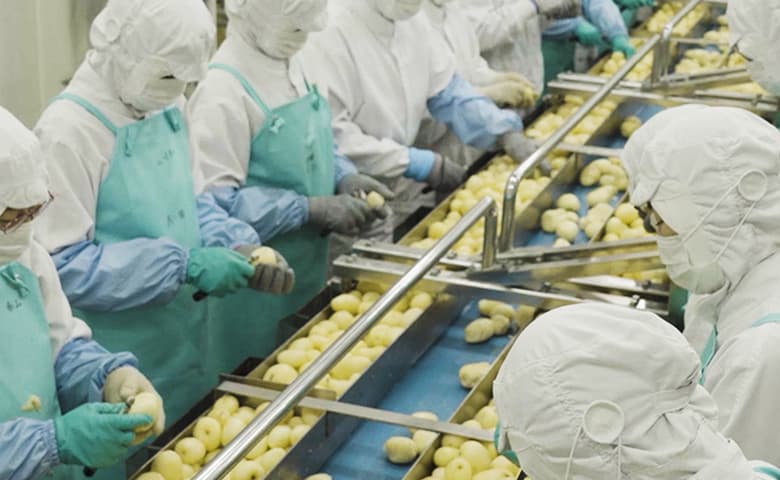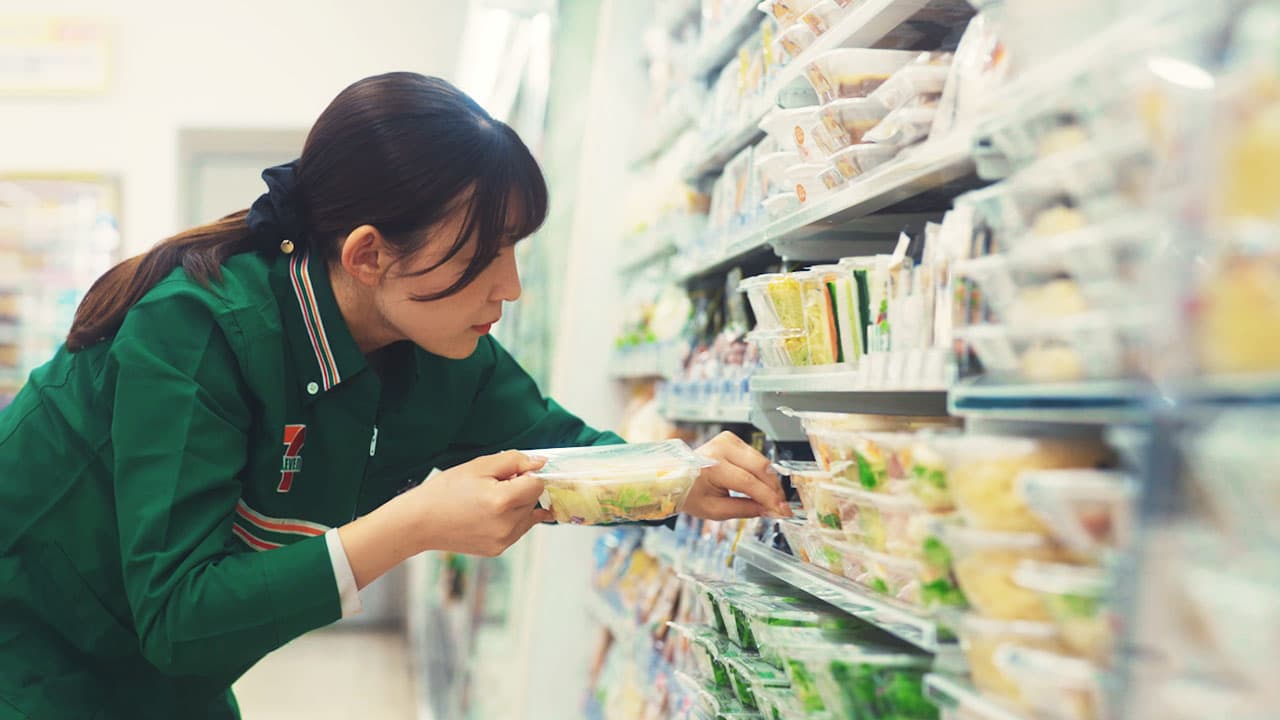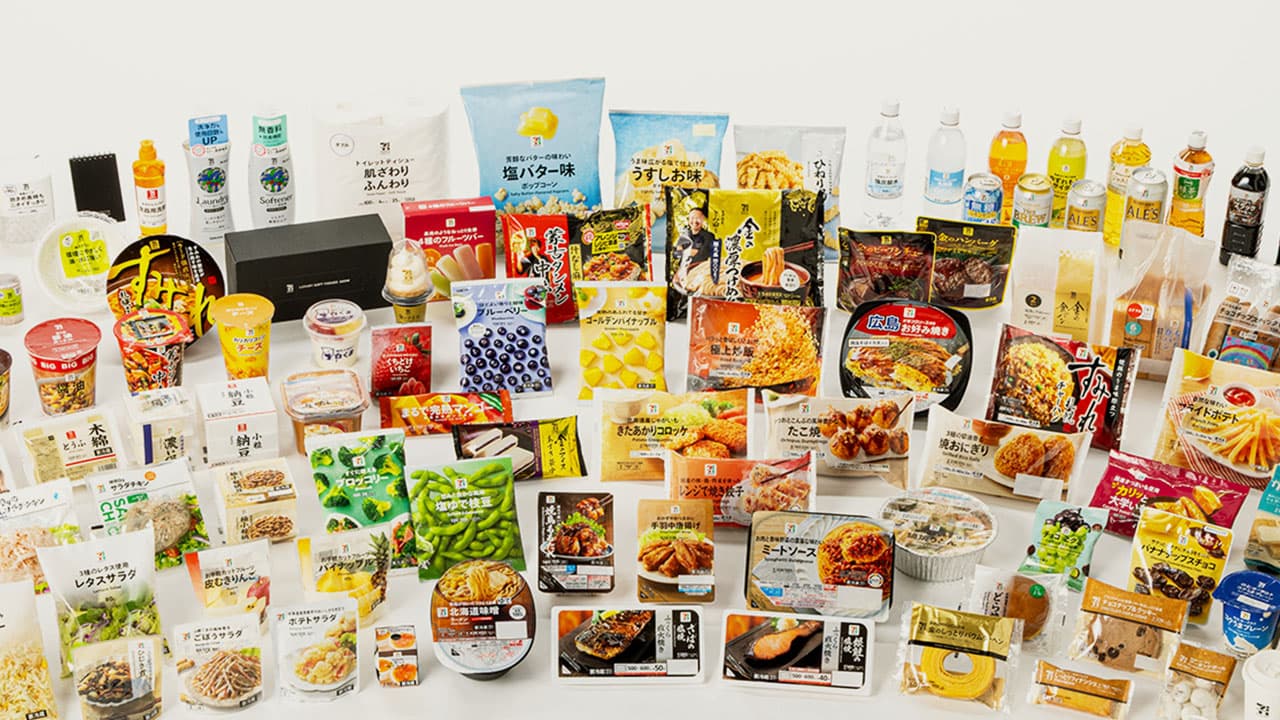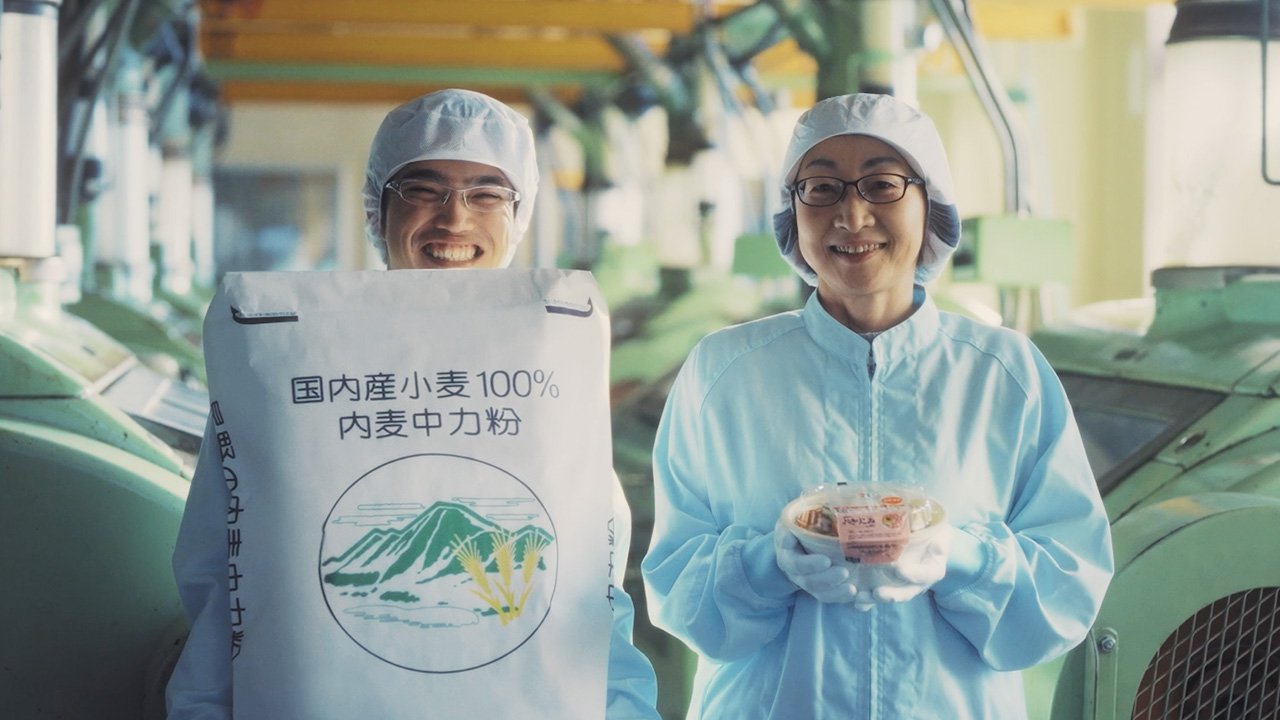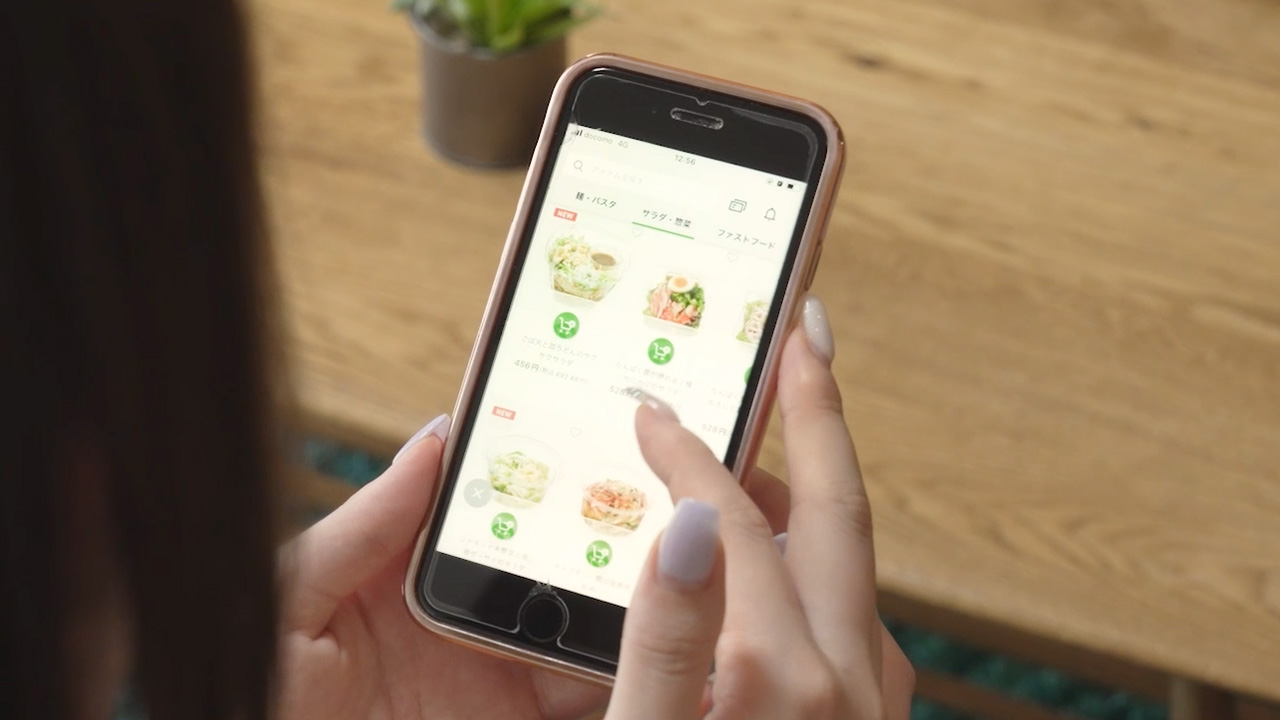Table of contents
Stakeholders Unite Under the Core Principles of “Trust and Integrity”
As 7-Eleven stores expanded nationwide in Japan, the number of business partners grew, resulting in inconsistencies in hygiene and quality control. To prevent food-related incidents, the Nihon Delica Foods Association (NDF) was established in 1979 as a cooperative organization to produce SEJ’s original fresh foods. By aligning processes—from raw material procurement and manufacturing equipment to recipe development and logistics—we implemented strict hygiene management across all stakeholders, including manufacturers and vendors handling raw materials, packaging, and production. Starting with 24 companies, NDF has grown to 60 companies with 171 locations (as of February 2025), becoming a vital part of SEJ’s quality management system.
Typically, companies do not share their manufacturing technology or expertise with competitors. However, SEJ, guided by its corporate philosophy of being a trustworthy and sincere company to all stakeholders, including customers, positioned quality control as a collaborative area for knowledge sharing among NDF member companies. After persistent efforts to build trust with NDF member companies, the current cooperative framework was established. SEJ continues to believe that proper, ongoing hygiene management leads to product quality and taste, fostering collaboration between SEJ and external manufacturers and vendors.
“At Seven-Eleven Japan, we develop our original fresh foods in collaboration with NDF member companies, but the capacity of a single manufacturer is limited when it comes to handling product variety and volume. That’s why we pool and share knowledge across companies—so customers can purchase uniform, consistent products nationwide,” explains Aoyama.

Advancing Quality Control Through Key Mechanisms and Initiatives
In its approach to quality control, SEJ prioritizes the viewpoint of "thinking from the customer's perspective," a principle ingrained within the company for years. It’s challenging to gain stakeholder cooperation if the focus is solely on company profit, but if we aim to delight customers, building cooperative frameworks with our partner companies becomes easier,” Aoyama emphasizes.
An example of hygiene management benefiting customers, manufacturers, and SEJ can be seen in pasta preparation. Previously, boiled pasta was cooled with running water, which controlled bacterial growth but also washed away flavor. By switching to a different cooling method at the factory, not only was flavor preserved, but shelf life was also extended. This method became shared knowledge among NDF member companies and is now used in factories across Japan.
Innovations in quality control at SEJ are actively applied beyond the manufacturing phase, extending into logistics. For example, SEJ’s “Temperature-Separated Combined Distribution System” transports products from different manufacturers in the same vehicle, maintaining four distinct temperature zones. As part of SEJ’s leading logistics strategy for convenience store distribution, this method enables the efficient delivery of fresh products. When the first store opened in 1974, around 70 delivery trucks visited per day—but thanks to this initiative, that number has been reduced to about 10, significantly lowering both delivery costs and environmental impact.
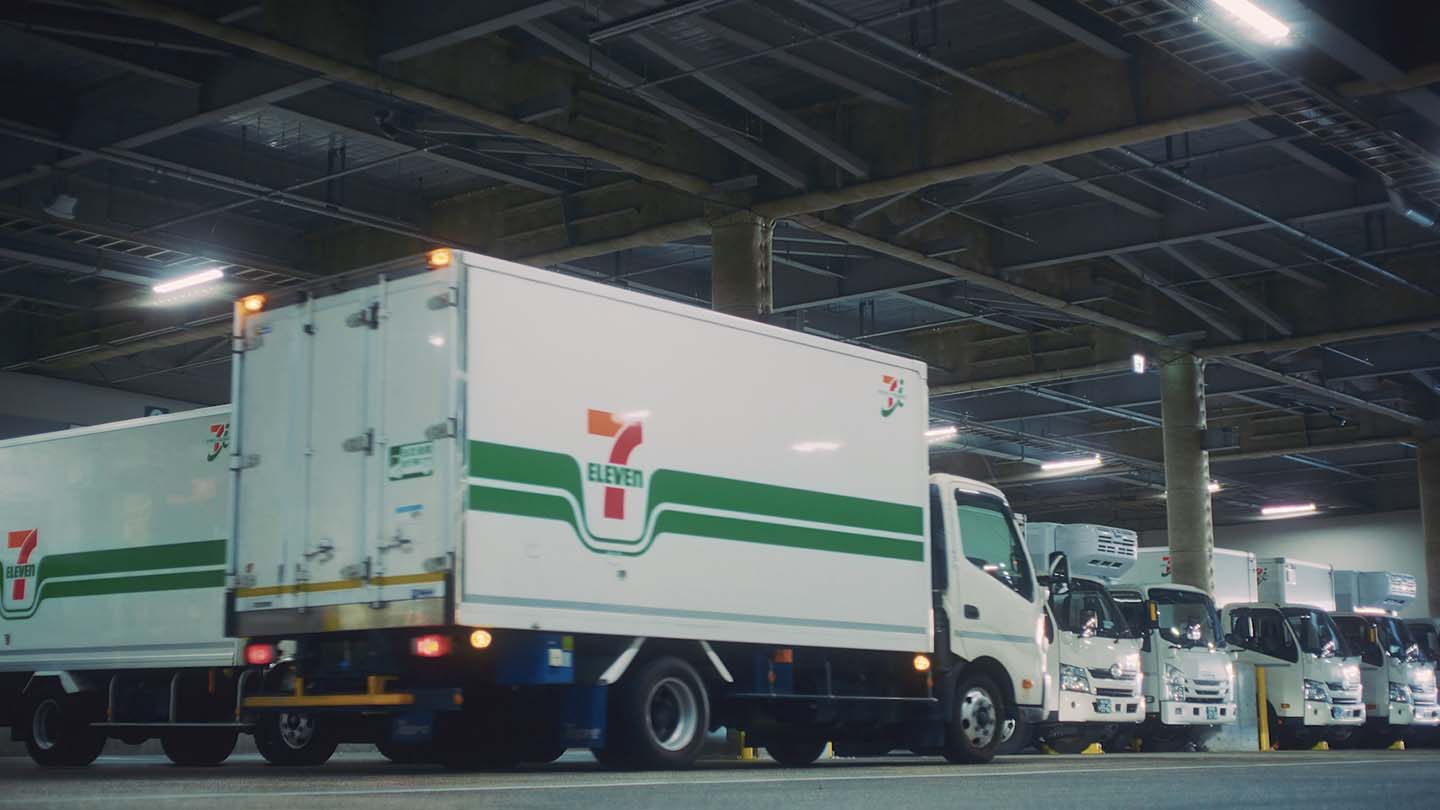
Leveraging Japan’s Value Chain Strategy on a Global Scale
The unique quality control practices developed in Japan are beginning to spread internationally. “We aim to expand our value chain strengths globally while also integrating local advantages and preferences,” says Aoyama enthusiastically.
One partner, Warabeya Nichiyo Holdings, a major producer of ready-to-eat meals for convenience stores, expanded into Dallas, USA, in 2017, working closely with SEJ on fresh food development and manufacturing. By summer 2026, a new factory will begin operations in Ohio, further strengthening their ability to supply high-quality, appealing products by leveraging the knowledge and technology refined in Japan.
Collaboration with this company has also yielded success beyond North America. In a city in Asia previously unfamiliar with the “ready-to-eat” meals and foods concept, which involves selling foods with relatively short shelf lives, efforts to maintain Japanese-level temperature controls in manufacturing and logistics led to prolonged negotiations with local health authorities. Ultimately, the hygiene standards set by SEJ and Warabeya Nichiyo Holdings were adopted as the local benchmark.
Moving forward, while maintaining a foundation of universally demanded “safety and security,” we will continue to refine product development—including quality control—through mutual collaboration and enhancement across countries and regions. We will also bring excellent overseas initiatives and ideas back to Japan, promoting growth for the entire “7-Eleven” brand rather than merely broadcasting information from Japan outward.
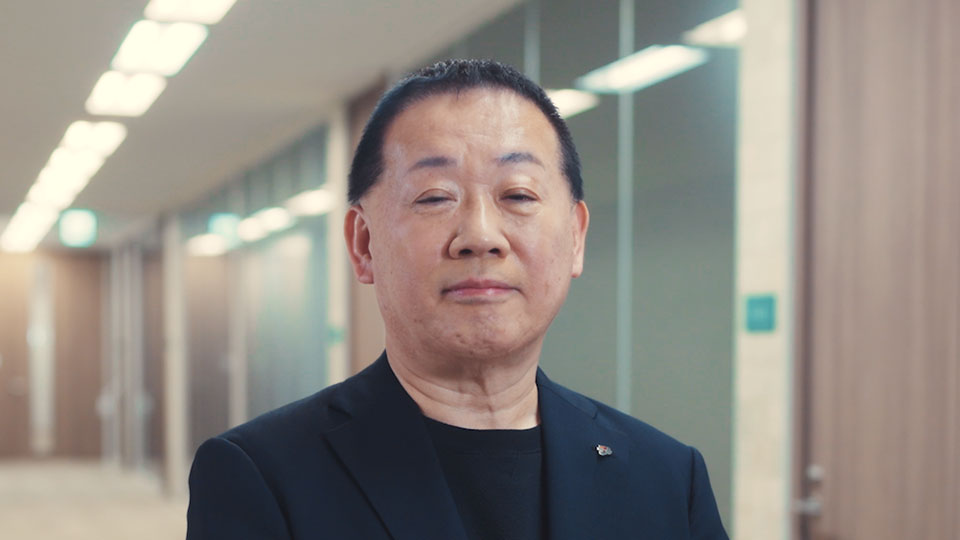
Seiichi Aoyama
Director and Managing Executive Officer,
Head of Merchandising Strategy,
Quality Control and Logistics Management Division
SEVEN-ELEVEN JAPAN CO., LTD.
Seiichi Aoyama
* Titles as of April 2025
* This article is based on data as of March 4, 2025.


